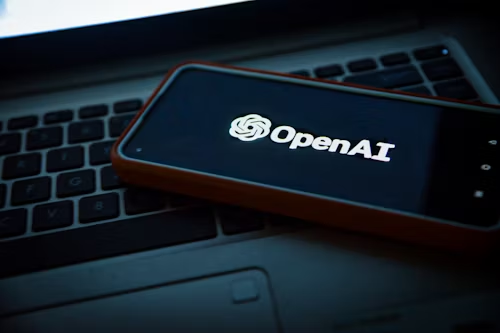Elon Musk’s lawsuit against OpenAI, which accused the company of abandoning its non-profit mission, was dropped in July but refiled in August. The amended lawsuit names new defendants, including Microsoft, LinkedIn co-founder Reid Hoffman, and former OpenAI board member and Microsoft vice president Dee Templeton.
The amended complaint also adds new plaintiffs: Shivon Zilis, a Neuralink executive and former CEO of OpenAI, and Musk’s AI company xAI.
Musk was one of the founders of OpenAI, which aims to research and develop AI for the benefit of humanity and was initially established as a non-profit organization. He left the company in 2018 following differences over its direction.
In the suit, Musk’s lawyers allege that OpenAI is now “actively trying to eliminate competitors” like xAI by “extracting promises from investors that they will not provide funding.” The company is also allegedly unfairly benefiting from Microsoft’s infrastructure and expertise in what Musk’s lawyers describe in the suit as a “de facto merger.”
“xAI has been harmed by, without limitation … an inability to obtain compute from Microsoft on terms anywhere near as favorable as OpenAI receives … and the exclusive exchange between OpenAI and Microsoft of competitively sensitive information,” the statement said. The complaint was filed late Thursday in federal court in Oakland, California.
Key Points in the Lawsuit
Hoffman’s positions on the boards of directors of Microsoft and OpenAI while also being a partner at investment firm Greylock gave him a privileged and unlawful view of the companies’ operations, the suit alleges. (Hoffman resigned from OpenAI’s board in 2023.) Musk’s legal counsel said Greylock has invested in Inflection, an AI startup that Microsoft acquired earlier this year as part of its acquisition, and that Inflection, according to the lawsuit, could conceivably be considered a competitor of OpenAI.
As for Templeton, who was briefly appointed by Microsoft as a non-voting observer of OpenAI, the amended complaint accuses her of being in a position to broker an antitrust-violating agreement between Microsoft and OpenAI.
‘The purpose of the prohibition on interlocking directorates is to prevent sharing of competitively sensitive information in violation of antitrust laws and/or providing a forum for the coordination of other anticompetitive activity,” the complaint states. “Allowing Templeton and Hoffman to serve as members of OpenAI’s …. board undermined this purpose. “
In addition to Microsoft, Hoffman and Templeton, California Attorney General Rob Bonta is also named as a defendant in Musk’s lawsuit. Bloomberg reported this month that OpenAI is in discussions with Bonta’s office about a process for restructuring the company.
According to the amended complaint, Gillis, who stepped down from the OpenAI board in 2023 after nearly four years, is considered an “injured employee” under California corporate law. According to the lawsuit, Gillis repeatedly raised concerns within the company about the deal with OpenAI but his concerns fell on deaf ears, concerns that were largely the same as Musk’s, the lawsuit says.


